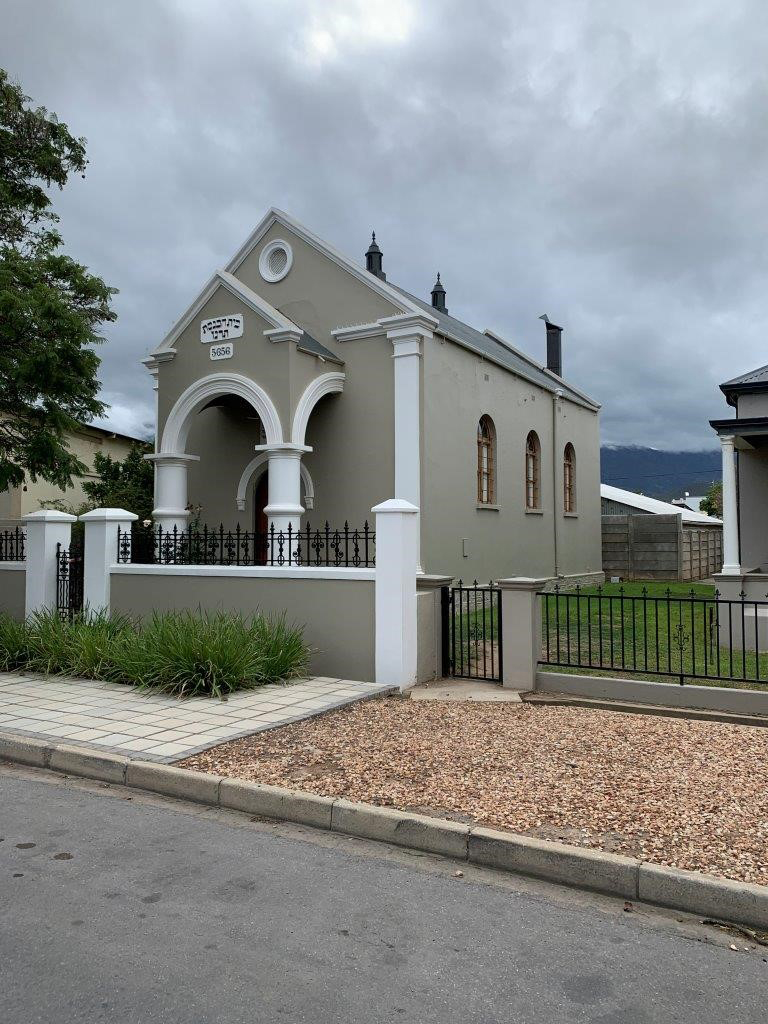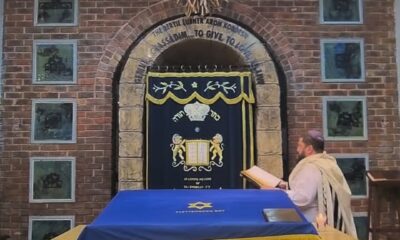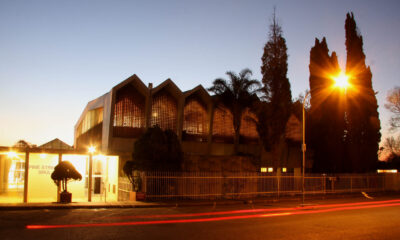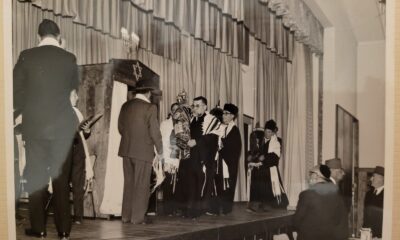
Featured Item

Repurposed Robertson shul still supports the community
Published
4 years agoon
When community members saw the former Robertson shul in the Western Cape advertised for sale as a one-bedroom cottage this week, many were shocked. But the history behind its transformation from a shul to a holiday home is fascinating and meaningful.
The building has been listed for sale by the current owner since September 2019, but the advert came to the attention of community members only this week.
The advert acknowledges the history of the building, and says amongst other things, “The synagogue in Robertson needs a new owner! This historic building was built during 1895 and 1896 for the Jewish congregation who lived in Robertson. The building is in absolute excellent keep and totally original, except for the fact that the ground floor has been replaced with new wooden floors.”
According to Rabbi Moshe Silberhaft, former country communities rabbi of the South African Jewish Board of Deputies, “The shul was established 124 years ago. When the last congregants left the town, they entrusted the shul and its assets to the Cape South African Jewish Board of Deputies [SAJBD] on condition that the funds from the sale went towards maintenance of the cemetery and general community needs.” Some of the funds went towards the Cape Board’s bursary fund for needy Jewish students.
Silberhaft is the spiritual leader of both the African Jewish Congress and the Small Jewish Communities Association, where he also fills the role of chief executive.
“The shul was sold in 2009 by the Cape Board to a member of the public who turned it into his holiday home but maintained all the original structures,’ he says.
The photographs in the advert are startling and somewhat unsettling. The ladies’ gallery is a bedroom, and a lounge has been set up in front of the aron kodesh (ark), which is still there, but without a curtain. A menorah is in front of it, but Silberhaft said this was probably bought by the current owner.
Some shul pews also remain in place, while the rest are now in the Hermanus shul, as are the lecterns. An Anne Frank poster alongside the stairs going to the gallery is also visible. A small bathroom and kitchen away from the former areas of worship make the space possible for human habitation. A fireplace has also been installed.
Silberhaft says the owner kept the shul in perfect condition, choosing to keep as much of the original structure in place as possible. He has also always welcomed visitors to view the shul. He hopes the next owner will do the same.
The Robertson shul’s transformation into a residence is one of a long list of mostly country shuls that have been transformed into other facilities. For example, former shuls in Caledon and Middelburg in the Cape have also been turned into houses. The Standerton shul was a bottle store when it was first sold, but is now the head office for the department of higher education and training. The Colesberg shul has been turned into a bank. In Willowmore, the shul is now a furniture shop. In Hermanus, the shul was bought with the intention to turn it into a mall, but it eventually became a university.
In Grahamstown, the shul was transformed into lawyers’ offices, but maintained much of its original structure. The owner chose to join the two ends of the ladies’ section together and make that the firm’s boardroom, with the shul’s original ten commandments overlooking the table, says Silberhaft. The original foundation stone remains, and a photo taken of the shul before it was deconsecrated proudly hangs in its foyer. Its bimah was given to the shul in Mauritius, where it’s used today.
Most shuls that have been converted into other facilities still look like shuls from the outside, as the facades can’t be altered because of their heritage status.
Back in Robertson, there are a handful of Jews that have moved there since the original community left, but they don’t have any formal community structures, says Silberhaft. The cemetery has been completely restored, with headstones laid flat, although there was an incident of vandalism last year.
The late Becky Saacks, with her late husband, Leslie, and fellow Robertson Jewish resident, the late Louis Rosenzweig, managed the affairs of the synagogue and cemetery from 1987. She also supervised the restoration of the cemetery and synagogue after floods in 2005, and founded, developed, and ran the Robertson Museum and its collections from 1972.
Her son, Mark Saacks, who resides in Cape Town, says he has fond memories of attending services at the shul, and “swinging on the metal gate at the front with the other children”.
He says his mother was involved in the sale of the shul, and was unsentimental about the change from shul to house. “She was much more concerned about the preservation of the history of the community and cemetery. I was quite surprised to see that it has been kept in such good condition. She would have been fine with seeing the photographs of it as a home today.”
Stuart Diamond, the director of the Cape South African Jewish Board of Deputies, says, “Once a shul is deconsecrated, it’s no longer seen as a holy site. While it’s sad to see country communities close and these assets move into others hands, I’m grateful to the new owner for ensuring that the building remains intact and for highlighting its history. It’s also heartening that the funds from the sale of the shul still have a positive impact on our community today.
“We have an incredibly good relationship with the Robertson community, and a local member of the community cares for the cemetery. After COVID-19 we will push on with cleaning and maintenance. If you have family buried in the cemetery, please contact us. We are looking for donors to assist with upgrading and maintaining Jewish cemeteries in Robertson, Montague, Caledon, Uniondale, Malmesbury, Worcester, and Wellington.
“The communities in Paarl, Stellenbosch, Somerset West, Strand, George, Oudtshoorn, and Plettenberg Bay are maintaining their own cemeteries. We will continue to take care of all Jewish cemeteries, funding dependent, in the Cape boundaries as a commitment to our Cape communities.”










